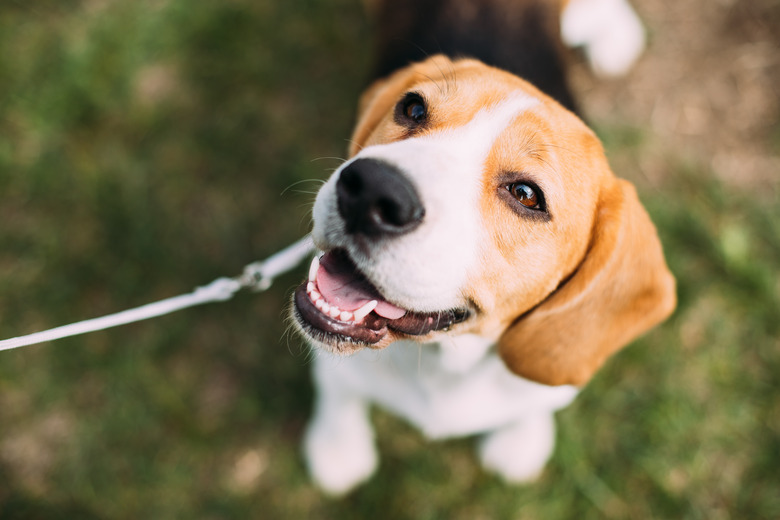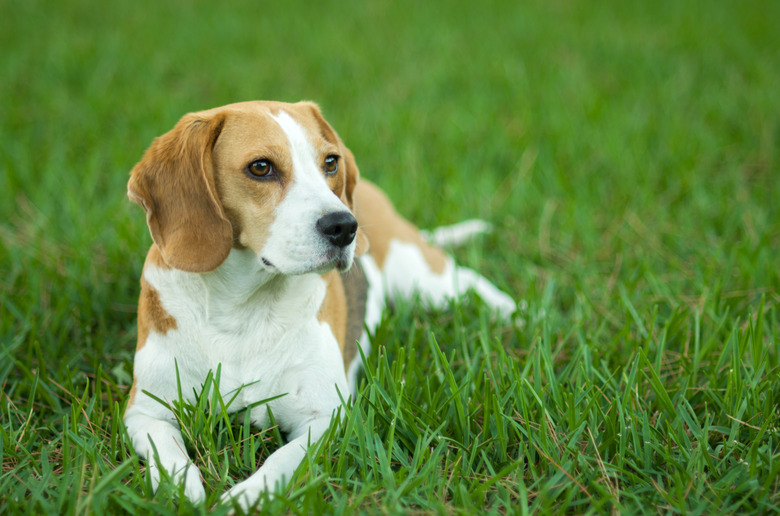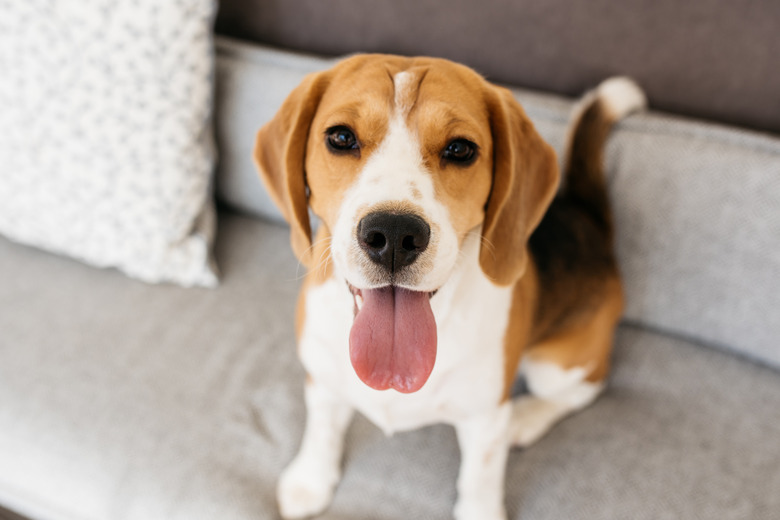Beagle Dog Breed Facts & Information
Beagles are kind and curious pups with a heart of gold, much like their Peanuts comic strip counterpart, Snoopy. These small dogs have big eyes and cute, floppy ears, slightly resembling foxhounds.
These scent hounds make excellent companion animals, which is why they are among the most popular hound dogs in the United States. They tend to live longer than many other dogs and will keep a family happy throughout their life span due to their playful, loving nature.
Beagle characteristics
Beagle characteristics
Beagles, which are part of the hound group, are great family dogs who are known for their friendly disposition. They're energetic, and they bond well with children and other dogs. They have a loud bark, which makes them excellent watchdogs. However, they aren't good guard dogs because they're so friendly.
According to the American Kennel Club breed standard, male and female beagles come in two sizes. Small "pocket beagles" are under 13 inches tall, and larger beagles are 13 to 15 inches tall. Smaller beagles weigh under 20 pounds, and larger ones weigh between 20 and 30 pounds.
Beagle dogs typically have a tricolor coat with different color combinations, including orange, brown, lemon yellow, white, blue, and red markings. They have floppy ears, a short coat, a sturdy build, large eyes, and a medium-length muzzle with large nostrils.
History of beagles
History of beagles
The beagle is one of the ancient dog breeds related to the bloodhound and basset hound, known for their great sense of smell. Their superior sniffers made them an excellent choice for rabbit hunting in England a long time before the Romans landed in 55 B.C.
Beagles were shipped to the United States after the Civil War. The American Kennel Club registered the first beagle in 1885; his name was Blunder. Today, beagles are the AKC's sixth most popular breed.
Beagle temperament & training
Beagle temperament & training
The beagle dog is very loving, curious, and nonaggressive. They are generally well-tempered. Because beagles have a history of being in packs, they get along well with other dogs. They make great family pets because they're good with kids and love to spend time with their owners.
Since they are curious and natural hunters, they can sometimes smell a scent and be determined to follow it. This trait can make it difficult to train them, and they can be stubborn, so always keep training positive, rewarding your dog with treats and praise for good behavior. They are good watchdogs because they love to bark and howl like most hounds, so expect to hear your beagle's "voice" throughout the day.
Beagle grooming
Beagle grooming
Brush your beagle weekly with a medium-bristle brush or a hound glove. Unless these hunting dogs have rolled around in something stinky, a bath every four to six weeks will suffice.
While they don't shed a lot of dead hair, they do shed some, especially in the spring. As with any other dog breed, keep their nails clipped to prevent them from becoming overgrown and impeding their mobility.
Beagle exercise & health
Beagle exercise & health
Beagles are high-energy dogs, so they need time outdoors — at least 30 minutes to an hour — every single day. Brisk walks, scent training, agility training, and trick training are all great ways to meet your dog's high activity level and meet their exercise needs.
Anything that they can do with you or other dogs will keep these sociable dogs happy. Always keep these little escape artists on a leash when outside and contain them in a fenced yard.
Beagles are generally hardy dogs with a life expectancy between 12 to 15 years. Some health problems common in the breed include epilepsy, hypothyroidism, cherry eye, beagle pain syndrome, bladder cancer, colic, and hip dysplasia.
Beagle puppies
Beagle puppies
Beagle puppies are relatively small and become fully grown at around 18 months of age. Two-month-old puppies will only weigh between 3.5 and 6 pounds, growing to about 10 to 15 pounds at 6 months of age.
While you can transition beagle puppies to adult food at 6 months to prevent them from becoming overweight, their body won't stop growing for another year. Don't forget to socialize your puppy to other people and pets starting at around 8 to 12 weeks.
References
- Petfinder: Beagle
- American Kennel Club: How Often Should You Bathe Your Dog?
- Beagle Owner: At What Age Is A Beagle Fully Grown?
- The National Beagle Club of America, Inc.: Health Concerns
- The National Beagle Club of America, Inc.: Overview
- Canna-Pet: Beagle Temperament & Personality
- American Kennel Club: Beagle
- Hill's Pet Nutrition: Beagle Dog Breed Information and Personality Traits


